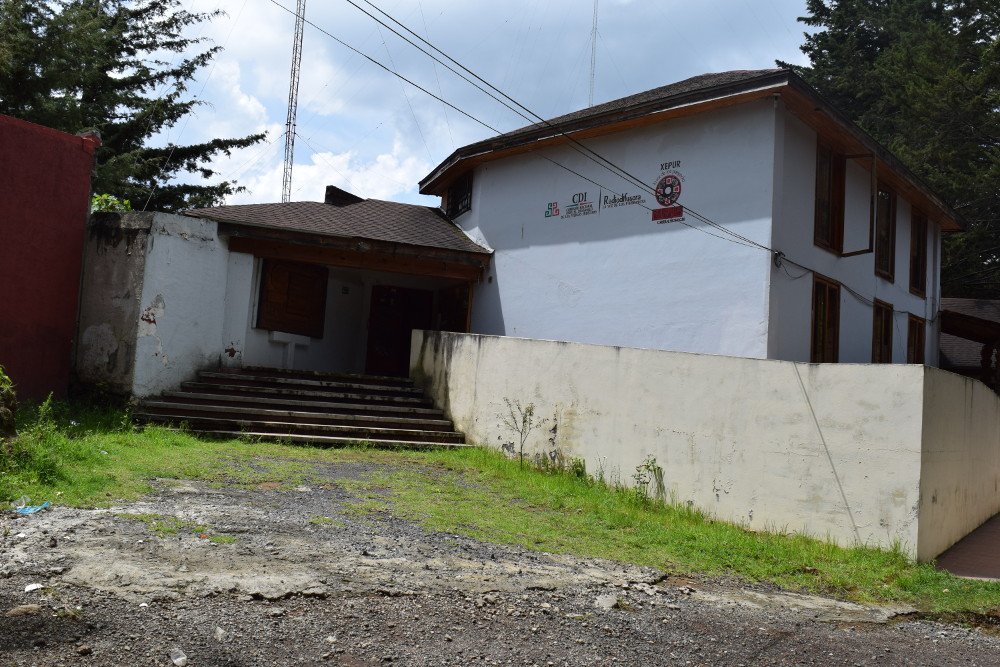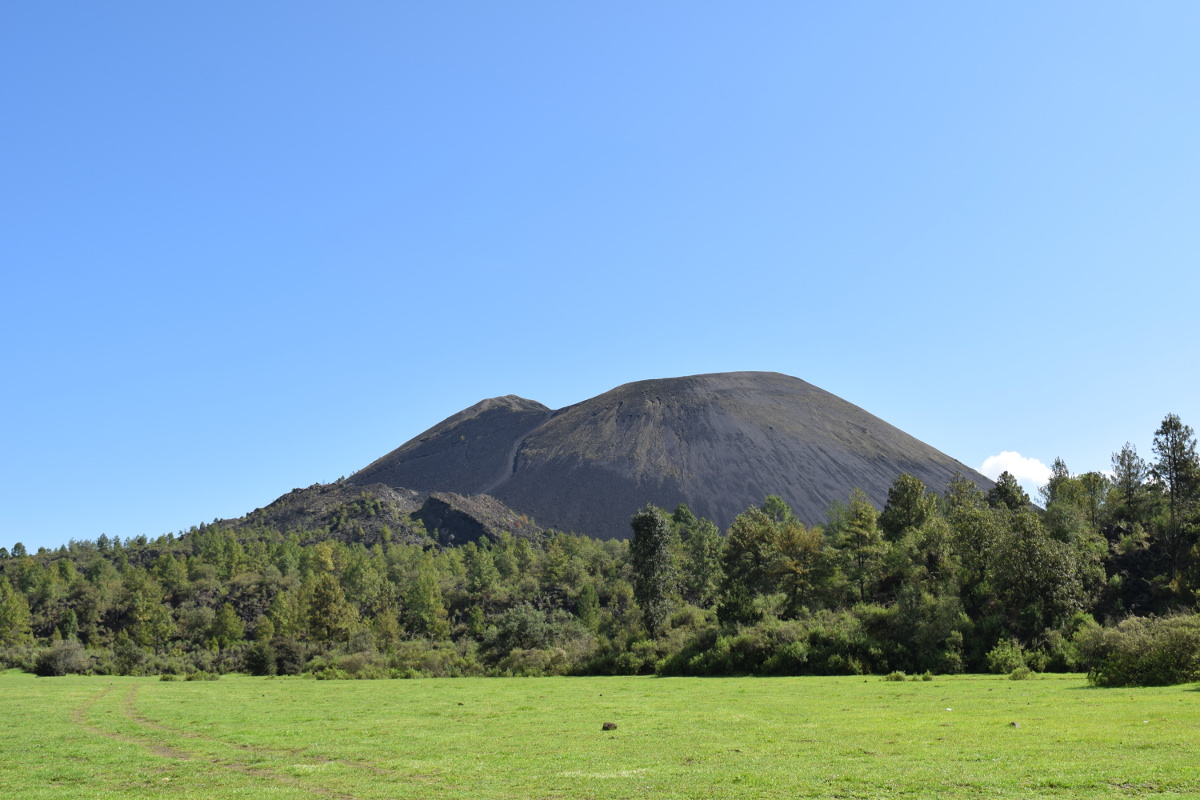Radio station XEPUR, Cherán, Michoacán
 Radio is important in rural and less affluent areas of Mexico. A lot of people don't have computers, smart phones (a lot of areas don't have 4G coverage), or televisions. Mexico doesn't have any equivalent of CBC or NPR; the closest thing to it are some university stations. Community radio stations are a new idea, and their numbers are increasing.
Radio is important in rural and less affluent areas of Mexico. A lot of people don't have computers, smart phones (a lot of areas don't have 4G coverage), or televisions. Mexico doesn't have any equivalent of CBC or NPR; the closest thing to it are some university stations. Community radio stations are a new idea, and their numbers are increasing.
There's an alternative form of radio that's been around for 40 years. Mexico's National Institute of Indigenous Peoples (Instituto Nacional Indigenista, or INI) created 21 radio stations, which broadcast in 31 indigenous languages. They are mostly AM and daytime-only. Six of them broadcast in Nahuatl, Mexico's most common indigenous language, spoken by 1.7 million people. Three of them broadcast in Yucatec Maya, spoken by 800,000 people.
Purépecha, spoken by 124,000 people, is way down the list. It is spoken in the highlands of the State of Michoacán, an area which includes Pátzcuaro, Uruapan, and Zamora. Their radio voice is XEPUR, "The Voice of the Purépecha", located in Cherán.

 I first heard of the
I first heard of the  An announcement came out on June 12, 2019 that an agreement had been made between the governments of the United States and Ecuador that would allow the US military to extend the runway of the airport on San Cristóbal Island, then use it as a base for AWACS surveillance planes, specifically the Lockheed AP-C3 Orion and the Boeing E-3 Sentry (derived from the 707).
An announcement came out on June 12, 2019 that an agreement had been made between the governments of the United States and Ecuador that would allow the US military to extend the runway of the airport on San Cristóbal Island, then use it as a base for AWACS surveillance planes, specifically the Lockheed AP-C3 Orion and the Boeing E-3 Sentry (derived from the 707).
 I first thought that something was wrong when comedian Bill Maher was invited to give the keynote address at the University of California Berkeley commencement in December, 2014. A small group of Muslim students there didn't like it, and several articles in Daily Kos took up the "islamophobia" cudgel.
I first thought that something was wrong when comedian Bill Maher was invited to give the keynote address at the University of California Berkeley commencement in December, 2014. A small group of Muslim students there didn't like it, and several articles in Daily Kos took up the "islamophobia" cudgel.


